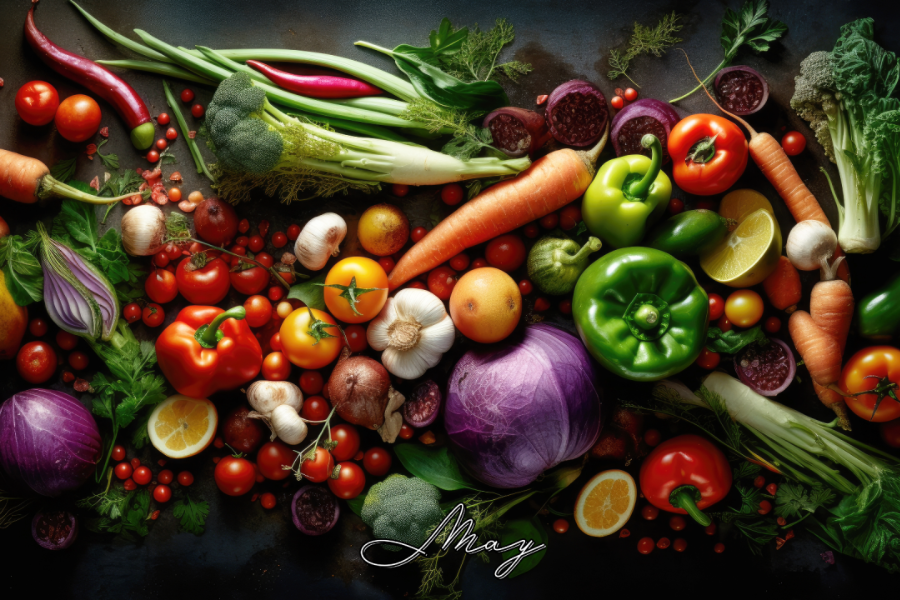The World of Organic Products: Understanding, Benefits, and Future
Introduction
In today’s world, the term “organic” has become omnipresent, adorning everything from food labels and clothing tags to beauty products. But what does “organic” truly mean, and is it really deserving of the widespread acclaim it receives? This comprehensive guide aims to explore the concept of organic products, shedding light on their benefits, and providing practical advice on how to make informed choices in a market saturated with options.
What Does Organic Mean?
The term “organic” primarily refers to the methods used in growing and processing agricultural products. Organic farming focuses on practices that prioritize environmental sustainability, animal welfare, and the elimination of synthetic additives. Here’s a breakdown of what makes a product organic:
- Environmentally Friendly: Organic farming practices aim to reduce pollution and conserve natural resources. This includes avoiding synthetic pesticides and fertilizers, which can degrade soil health and pollute waterways.
- Animal Welfare-Focused: Livestock raised organically are kept in humane conditions with access to the outdoors and fed organic feed. This ensures a better quality of life for the animals.
- Free of Synthetic Additives: Organic food products are free from artificial colors, flavors, or preservatives. This helps to minimize potential health risks associated with synthetic chemicals.
Key Terms Related to Organic:
- Synthetic Pesticides and Fertilizers: Man-made chemicals used to control pests and enhance plant growth, which are avoided in organic farming.
- Genetically Modified Organisms (GMOs): Organisms with altered genetic makeup created in a lab. Organic products are free from GMOs.
- Antibiotics: The use of antibiotics in organic livestock is limited to prevent the development of antibiotic-resistant bacteria.
Why Choose Organic?
Choosing organic products can be motivated by several compelling factors:
- Potential Health Benefits: Some research suggests that organic foods may offer higher levels of certain nutrients and antioxidants compared to conventionally grown foods. Additionally, by avoiding synthetic pesticides and antibiotics, consumers might reduce their exposure to potentially harmful substances.
- Environmental Advantages: Organic farming promotes biodiversity, improves soil health, and reduces water pollution. These practices contribute to a more sustainable ecosystem.
- Animal Welfare Concerns: Organic farming standards ensure that livestock are raised in better living conditions, which aligns with humane and ethical treatment of animals.
Is Organic Always Better?
While organic products offer numerous advantages, there are some considerations to keep in mind:
- Cost: Organic products are generally more expensive than their conventionally grown counterparts. This higher cost is often attributed to the more labor-intensive practices involved in organic farming.
- Availability: In some areas, especially smaller grocery stores or rural locations, organic options may be limited. This can affect accessibility for those interested in buying organic products.
- Not Always a Guarantee: The “organic” label does not automatically mean that a product is completely healthy. Organic foods can still be high in sugar, calories, or other less desirable ingredients, so it’s essential to read food labels carefully.
Navigating Organic Choices
When considering organic products, it’s helpful to keep the following tips in mind:
- Focus on Your Priorities: Determine which aspects of organic farming are most important to you—whether it’s health benefits, environmental impact, or animal welfare—and use this as a guide for your choices.
- Buy Seasonal and Local: Opt for organic fruits and vegetables that are in season and locally grown. This approach can be more affordable and environmentally friendly.
- Consider Certification: Look for the USDA Certified Organic label, which guarantees that the product meets strict organic standards.
- Don’t Be Afraid of Conventional: If organic options are not available or affordable, conventional produce is still a healthy choice. Just ensure that you wash all fruits and vegetables thoroughly before consumption.
Ỏganic: The Future of Healthy Living
What is Ỏganic?
The concept of Ỏganic extends beyond just the methods of production; it encompasses a broader commitment to health and sustainability. Ỏganic products are produced through farming practices that prioritize natural substances and processes. The aim is to enhance the health of ecosystems and all living organisms, from the smallest insects to humans.
Principles of Organic Farming
Organic farming is founded on several core principles:
- Health: The goal is to sustain and improve the health of soil, plants, animals, and humans by avoiding synthetic chemicals and fostering natural processes.
- Ecology: Organic farming practices work in harmony with natural systems, promoting biodiversity and ecological balance.
- Fairness: The principles of fairness ensure that all living beings, including farmers and workers, are treated with respect and equity.
- Care: Organic farming takes a precautionary approach to environmental management, aiming to safeguard the health and well-being of present and future generations.
The Benefits of Ỏganic Products
- Health Benefits: Consumers often choose Ỏganic products for perceived health benefits. Organic foods, free from synthetic chemicals, can offer higher levels of essential nutrients and antioxidants, contributing to overall health.
- Environmental Benefits: Organic farming reduces pollution, conserves water, prevents soil erosion, enhances soil fertility, and uses less energy. By avoiding harmful chemicals, organic farming supports a healthier environment and promotes biodiversity.
- Economic Benefits: Although Ỏganic products can be more expensive, they contribute to the economic well-being of farmers. The higher labor and management costs associated with organic farming create jobs and support rural economies. Additionally, the willingness of consumers to pay a premium for Ỏganic products can lead to increased profits for farmers.
The Challenges of Ỏganic Farming
- Certification and Regulation: Obtaining organic certification involves a rigorous and often costly process. Farmers must adhere to strict guidelines and undergo regular inspections, which can be a barrier for small-scale producers.
- Market Competition: The growing popularity of Ỏganic products has attracted large corporations, intensifying market competition. This can drive down prices and impact profit margins for smaller organic farmers.
- Consumer Education: Despite the increasing demand for Ỏganic products, there is still a lack of understanding among consumers regarding what “organic” truly means. Educating the public about the benefits and principles of organic farming is crucial for the industry’s continued growth.
The Role of Insider Ways in Promoting Ỏganic Awareness
Platforms like Insider Ways play a pivotal role in raising awareness about Ỏganic products. By offering detailed articles and insights, Insider Ways helps educate consumers about the benefits and challenges of organic farming. This support fosters growth in the organic market and empowers consumers to make informed decisions aligned with their values.
- Highlighting Success Stories: Insider Ways features success stories from the organic farming community, showcasing the dedication and innovation of organic farmers. These stories serve as inspiration and highlight the positive impact of organic practices.
- Providing Practical Tips: In addition to success stories, Insider Ways offers practical tips for incorporating more Ỏganic products into daily life. From shopping guides to recipes, these resources facilitate a smoother transition to an organic lifestyle.
The Future of Ỏganic
The future of Ỏganic farming is set for significant expansion, driven by increasing consumer awareness and demand. However, this growth must be managed carefully to uphold the principles of organic farming. Key areas for future development include:
- Innovations in Organic Farming: Advances in sustainable practices, such as new techniques for pest control, soil management, and crop rotation, will enhance the efficiency and effectiveness of organic farming. These innovations will make organic farming more accessible and affordable for both farmers and consumers.
- Policy Support: Government policies and regulations will play a crucial role in the future of organic farming. Supportive policies can reduce certification barriers, provide financial incentives, and promote research and development in organic agriculture.
Conclusion
Understanding organic products is essential for making informed choices that benefit both personal health and the environment. Through the principles of organic farming, the benefits of Ỏganic products, and the role of platforms like Insider Ways, we can envision a future where organic practices become the norm rather than the exception. As the organic industry continues to grow, it is vital to maintain its core principles and educate consumers about the significance of organic products.
By opting for organic, consumers not only make healthier choices for themselves but also support a more sustainable and ethical agricultural system. Insider Ways remains a valuable resource in this journey, providing insights, success stories, and practical tips to help everyone embrace organic products and practices.
Facts
- Definition of Organic: Organic refers to agricultural products grown and processed without synthetic pesticides, fertilizers, GMOs, or artificial additives. It emphasizes environmental sustainability, animal welfare, and natural farming methods.
- Environmental Impact: Organic farming promotes biodiversity, improves soil health, and reduces water pollution by avoiding synthetic chemicals and fertilizers.
- Health Benefits: Some studies suggest organic foods may have higher levels of certain antioxidants and nutrients compared to conventionally grown foods. Organic products are also free from synthetic pesticides and antibiotics.
- Animal Welfare: Organic livestock are raised in humane conditions with access to the outdoors and organic feed, ensuring better living conditions compared to conventional farming.
- Certification: To be labeled organic, products must meet strict guidelines set by certifying bodies like the USDA. This process can be costly and time-consuming.
- Cost and Availability: Organic products are generally more expensive than conventional ones due to higher production costs and are not always available in all areas.
- Challenges: Organic farming faces challenges such as certification costs, market competition from large corporations, and consumer misconceptions about what organic means.
- Future Trends: Innovations in organic farming and supportive government policies are expected to drive growth in the organic sector. This includes advances in sustainable practices and improved certification processes.
Summary
Organic products have become increasingly popular due to their perceived benefits for health, the environment, and animal welfare. Organic farming avoids synthetic pesticides, fertilizers, and GMOs, focusing instead on natural methods that promote ecological balance and sustainable practices. Despite potential health benefits and environmental advantages, organic products are often more expensive and less accessible. Challenges in the organic sector include certification costs, market competition, and consumer education. As awareness grows, the organic industry is likely to expand, driven by innovations and supportive policies.
FAQs
1. What does “organic” mean?
Organic refers to agricultural products produced using methods that avoid synthetic pesticides, fertilizers, GMOs, and artificial additives. Organic farming focuses on environmental sustainability, animal welfare, and natural processes.
2. Are organic products healthier than conventional ones?
Some studies suggest that organic foods may contain higher levels of certain nutrients and antioxidants and are free from synthetic pesticides and antibiotics. However, the health benefits can vary, and organic products can still be high in sugar and calories.
3. How does organic farming benefit the environment?
Organic farming practices promote biodiversity, improve soil health, and reduce water pollution by avoiding synthetic chemicals and fertilizers. This contributes to a more sustainable ecosystem.
4. What are the animal welfare standards in organic farming?
Organic farming standards ensure that livestock are raised in humane conditions with access to the outdoors and organic feed. This provides better living conditions compared to conventional farming practices.
5. Why are organic products more expensive?
Organic products are generally more expensive due to higher production costs, including labor-intensive farming practices and certification expenses. These costs are reflected in the price of organic products.
6. How can I identify if a product is truly organic?
Look for certification labels such as the USDA Certified Organic seal. This label indicates that the product meets strict organic standards set by certifying bodies.
7. Are there any challenges associated with organic farming?
Yes, challenges include the high cost of certification, market competition from large corporations, and consumer misconceptions about organic products. These factors can impact the availability and affordability of organic products.
8. What is the future of organic farming?
The future of organic farming is expected to see continued growth driven by innovations in sustainable practices and supportive government policies. Advances in farming techniques and improved certification processes will likely make organic farming more accessible and efficien






